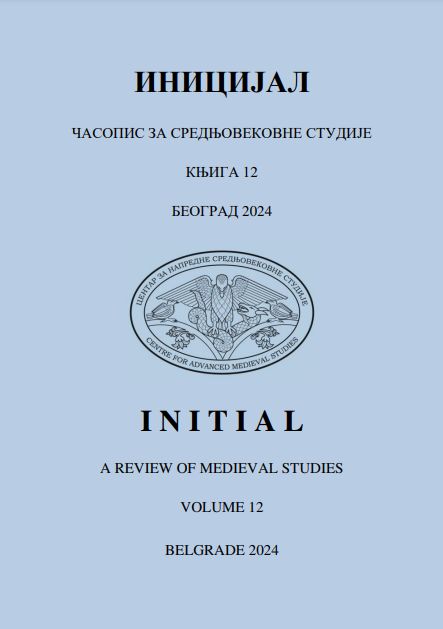DEATH OF SULTAN MEHMED II AND ANTI-OTTOMAN CRUSADE RHETORIC IN GUILLAUME CAOURSIN’S ORATIO IN SENATU RHODIORUM DE MORTE MAGNI TURCI
DEATH OF SULTAN MEHMED II AND ANTI-OTTOMAN CRUSADE RHETORIC IN GUILLAUME CAOURSIN’S ORATIO IN SENATU RHODIORUM DE MORTE MAGNI TURCI
Author(s): Igor StamenovićSubject(s): 15th Century, The Ottoman Empire
Published by: Центар за напредне средњовековне студије
Keywords: Mehmed II; Guillaume Caoursin; Later Crusades; Knights Hospitaller; Ottoman Empire
Summary/Abstract: The paper examines Guillaume Caoursin’s Oratio in senatu Rhodiorum de morte Magni Turci, a speech delivered by the Hospitaller vicechancellor before the Knights Hospitaller of Rhodes on the occasion of Sultan Mehmed II’s (1444–1446; 1451–1481) death in 1481. The study analyzes Caoursin’s rhetoric, focusing on his portrayal of Mehmed as a demonic figure and the primal enemy of Christendom, as well as the theological interpretation of the Sultan’s death as a divine intervention. Additionally, the paper explores how Caoursin’s oration was crafted to serve the anti-Ottoman crusade propaganda. The analysis places Caoursin’s narrative within the broader context of late medieval European anti-Ottoman discourse, with particular attention to his use of religious symbolism, historical and biblical allusions, and the demonizetion of the Muslim Other to justify and inspire a call for a crusade.
Journal: Иницијал. Часопис за средњовековне студије
- Issue Year: 2024
- Issue No: 12
- Page Range: 209-231
- Page Count: 23
- Language: English

